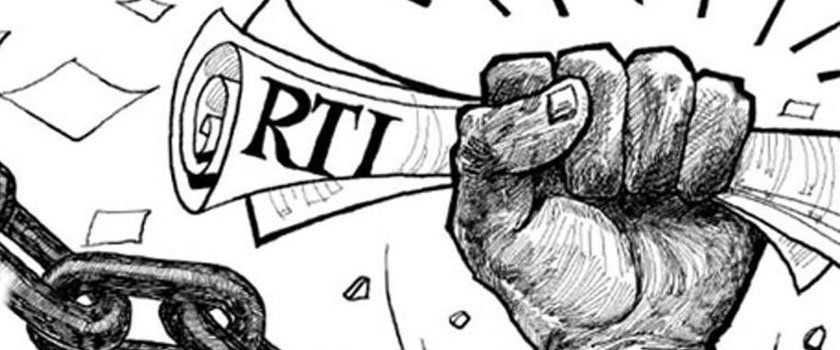Posted On June 5, 2020
A Right to Information (RTI) query and swift action by the State Information Commission finally managed to bring water to a parched remote Dalit locality in Madhya Pradesh.
This was made possible after Rewa-based activist moved the RTI application on May 26 with the Public Health Engineering Department seeking information on the action taken regarding the digging of a borewell in Nevaria locality under Gangev block.
Activist Shivanand Dwivedi said in his plea that it was a matter pertaining to Right to Life and offering a reply within 48 hours under section 7 (1) of the RTI Act was mandatory.
However, after 216 hours (nine days), Executive Engineer Sharad Patel said that fetching water from a distance of 900m was not a violation of Right to Life.
Dwivedi said about 100 Dalit members of the tribal locality did not even have access to this source 900m away during summer and had to look for water elsewhere.
“This (PHE) is the same department which digs borewells in the courtyards of the high and mighty against norms,” Dwivedi told News18.
As a reply to Dwidevi’s first appeal, Appellant Officer Sharad Chaudhary wrote on email on June 3 blaming the executive engineer for the mess, adding that he has directed the officer to visit the locality on June 2 and prepare a proposal of digging borewell in a week.
Meanwhile, on May 30, Dwivedi had made a second appeal to Information Commissioner Rahul Singh through Whatsapp and email. On June 2, Singh issued a six-page notice to both the officers and asked them to appear for a hearing via video conference between 12-1pm on June 4.
In the intervening night of June 3 and 4, the PHE officials landed at Nevaria locality in Rewa, dug up a borewell and informed the commission about the move next morning.
Stating that the RTI in this case not only offered a reply to the applicant, but also managed to bring water to the parched land after decades of Independence, Singh said herein lies the importance of the Act in serving the common people’s cause.
Singh said that while technology has been used in some cases earlier as well, it has become extremely useful and emerged as a new normal in times of a pandemic where social distancing is key.
This has also helped in faster disposal of RTI appeals, which earlier used to take months some times, while saving money of the state exchequer as well as applicants, he added.
Dwivedi said the villagers of Nevaria were extremely grateful to the information commissioner for addressing their water woes that had been ignored for years.
d activist moved the RTI application on May 26 with the Public Health Engineering Department seeking information on the action taken regarding the digging of a borewell in Nevaria locality under Gangev block.
Activist Shivanand Dwivedi said in his plea that it was a matter pertaining to Right to Life and offering a reply within 48 hours under section 7 (1) of the RTI Act was mandatory.
However, after 216 hours (nine days), Executive Engineer Sharad Patel said that fetching water from a distance of 900m was not a violation of Right to Life.
Dwivedi said about 100 Dalit members of the tribal locality did not even have access to this source 900m away during summer and had to look for water elsewhere.
“This (PHE) is the same department which digs borewells in the courtyards of the high and mighty against norms,” Dwivedi told News18.
As a reply to Dwidevi’s first appeal, Appellant Officer Sharad Chaudhary wrote on email on June 3 blaming the executive engineer for the mess, adding that he has directed the officer to visit the locality on June 2 and prepare a proposal of digging borewell in a week.
Meanwhile, on May 30, Dwivedi had made a second appeal to Information Commissioner Rahul Singh through Whatsapp and email. On June 2, Singh issued a six-page notice to both the officers and asked them to appear for a hearing via video conference between 12-1pm on June 4.
In the intervening night of June 3 and 4, the PHE officials landed at Nevaria locality in Rewa, dug up a borewell and informed the commission about the move next morning.
Stating that the RTI in this case not only offered a reply to the applicant, but also managed to bring water to the parched land after decades of Independence, Singh said herein lies the importance of the Act in serving the common people’s cause.
Singh said that while technology has been used in some cases earlier as well, it has become extremely useful and emerged as a new normal in times of a pandemic where social distancing is key.
This has also helped in faster disposal of RTI appeals, which earlier used to take months some times, while saving money of the state exchequer as well as applicants, he added.
Dwivedi said the villagers of Nevaria were extremely grateful to the information commissioner for addressing their water woes that had been ignored for years.
Courtesy : News 18

Leave a Reply